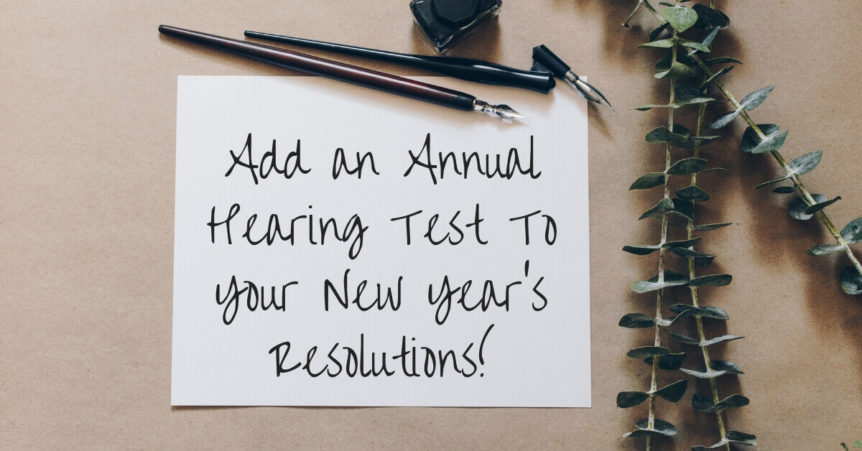- Tinnitus Management During the Fall Season - October 8, 2024
- Tips for Staying Safe During a Heat Wave - September 3, 2024
- Tips for Disclosing Hearing Loss - August 8, 2024
As we’ve welcomed in the New Year, many of us have also come up with a plethora of resolutions to improve our lives. We resolve to eat healthier, exercise more frequently, or to quit drinking and smoking. More often than not, these resolutions revolve around our overall health. What’s often missing from the list is protecting our hearing.
It is estimated that 48 million Americans suffer from some sort of hearing loss. The World Health Organization warns us that billions of people worldwide are at risk from noise-induced hearing loss due to loud noises in the workplace, at home, and even during leisurely activities. Let’s get on the right track this year and add hearing health to our New Year’s resolution list!
How Loud is Too Loud?
Many people may not know that everyday sounds can be damaging to our hearing. So how loud is too loud and at what level does it become a danger to our ears? Sound is measured in decibels (dB) and as these units rise, the intensity of sound increases. The higher the intensity, the higher the risk of hearing loss.
Research has shown that anything about 85 dB can potentially damage your hearing with continued exposure. This list below provides a range of different sounds and their decibel levels.
- Speaking softly in a tranquil environment – 30 dB
- Every day, normal conversation – 60 dB
- City traffic – 85 dB
- Motorcycle – 100 dB
- Audio music device at maximum volume – 100+ dB
- Loud rock concert – 110 dB
- Shotgun Blast – 165 dB
A 10 dB increase on the decibel scale is perceived by the ear as being twice as loud. This goes to show you that a loud rock concert is 32 times louder than our everyday, normal conversations. Many people wouldn’t think driving a motorcycle or turning up the volume on our music devices is actually damaging our hearing health. Luckily, this kind of hearing loss is preventable.
Protecting Our Ears
Damage to our hearing is influenced by the volume or intensity of the noise, the exposure time to the noise, and the distance between our ears and the noise source. If we know this, there are three ways in which we can easily protect our hearing. The first is to limit the volume on our hearing devices, phones, or TV. Furthermore, we can limit our exposure time to the noise through regulation. Lastly, we can increase the distance to loud noises to avoid direct contact.
If you frequently find yourself listening to music on headphones, try to turn down the volume or take breaks. If you’re out at a sporting event, concert, or fireworks show, try to stay as far away from the source of the noise. If noise is all around you, invest in protective ear plugs for protection.
Signs of Hearing Loss
Hearing loss is often considered invisible due its gradual progression. Many people fail to identify that they are actually facing some sort of hearing loss because it often isn’t a sudden occurrence, and our ears adjust to our surrounding environment. Although this may be the case, there are signs and indicators that one may be suffering from hearing loss.
If you experience ringing in the ears, referred to as tinnitus, this is a sign that there is some hearing damage. A “full” sensation within your ear, or muffled sounds, is another sign. You may be experiencing long-term hearing loss if you find yourself asking people to continually repeat themselves or have trouble following conversations.
If you have difficulty identifying hearing loss for yourself, more often than not your loved ones will surely notice your hearing loss. One may brush it off, but it’s important to accept the comments and seek out a hearing health professional before your hearing loss gets worse.
Get Your Hearing Tested
If you or a loved one has yet to get a hearing test, now is the time. Start the year off right and reach out to Better Hearing Center to schedule a hearing test today. Even if your hearing is normal, it is important to establish a baseline for your hearing health. If the hearing test indicates some sort of hearing loss, our professionals will guide you in finding the best way to improve your hearing health moving forward!

